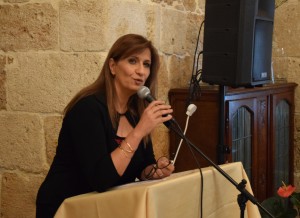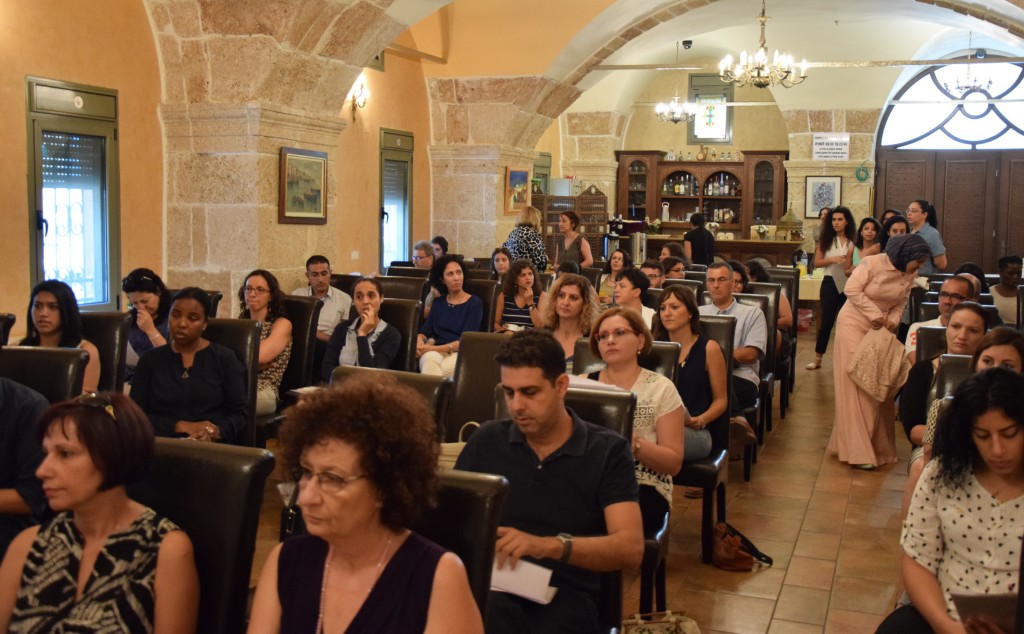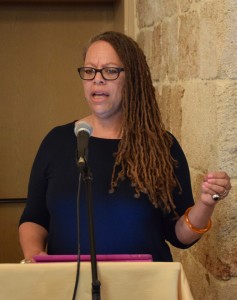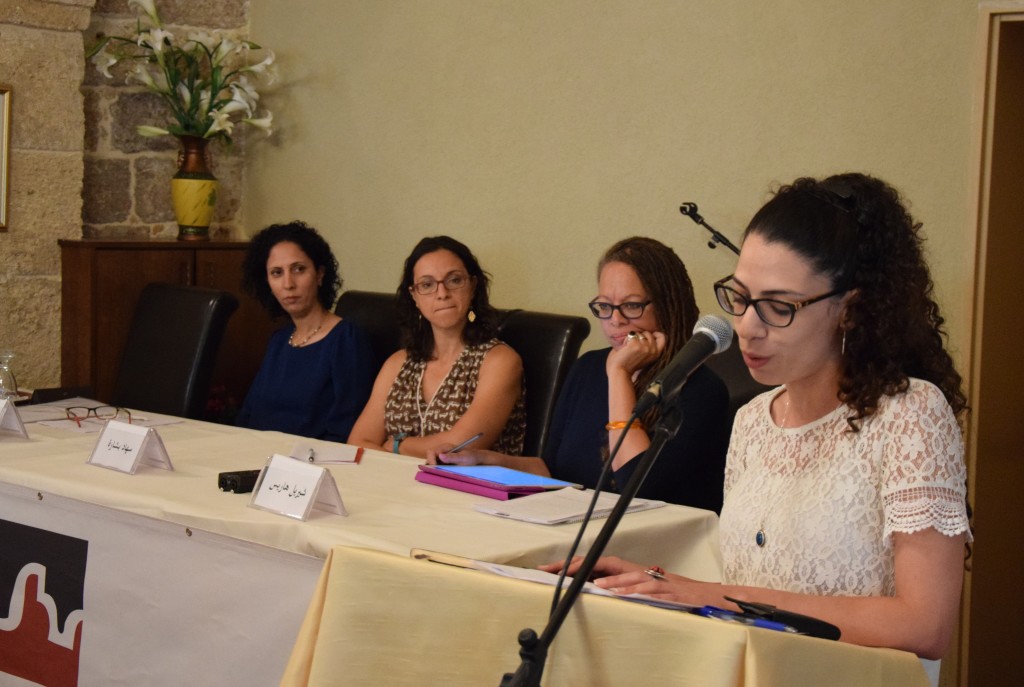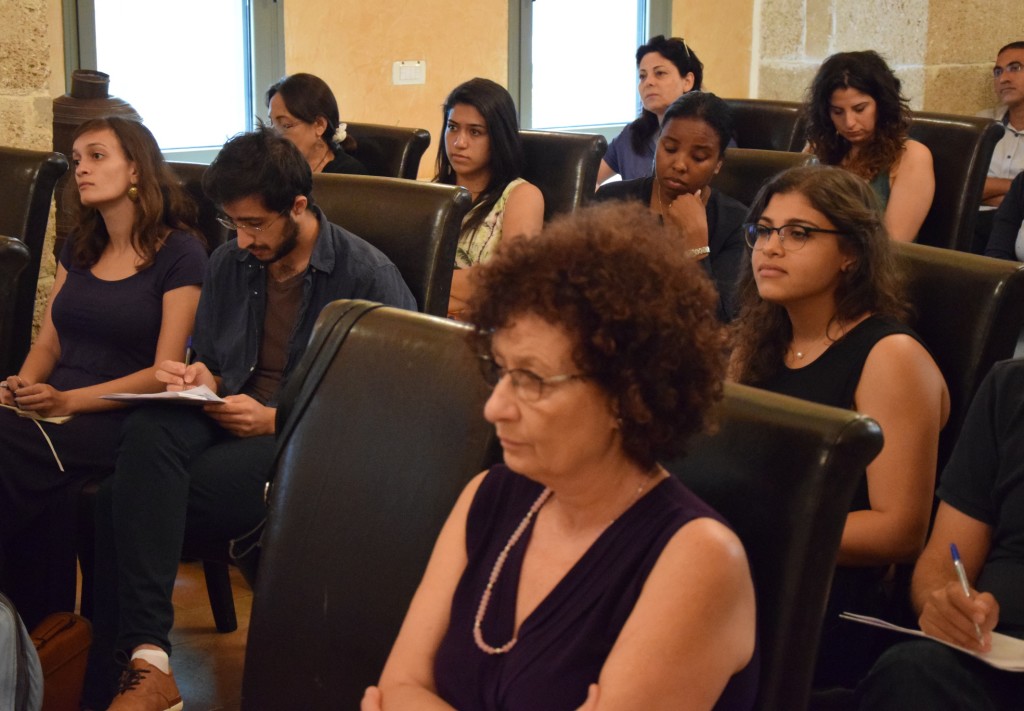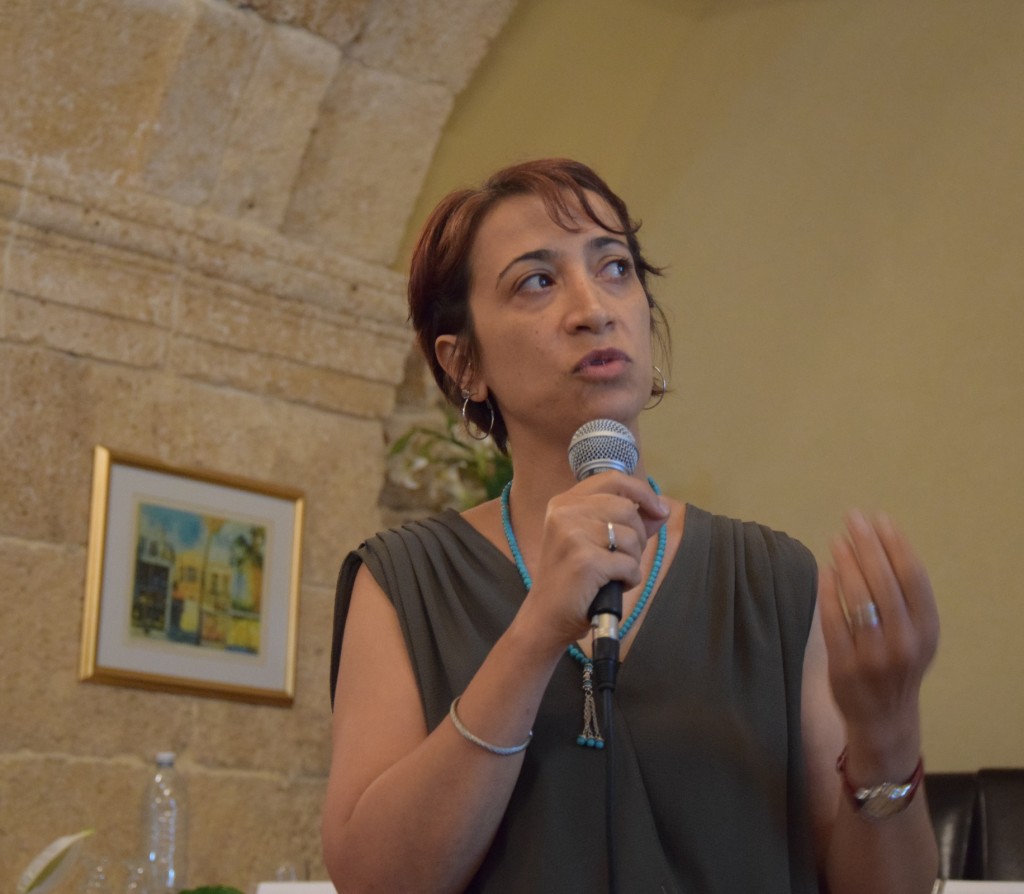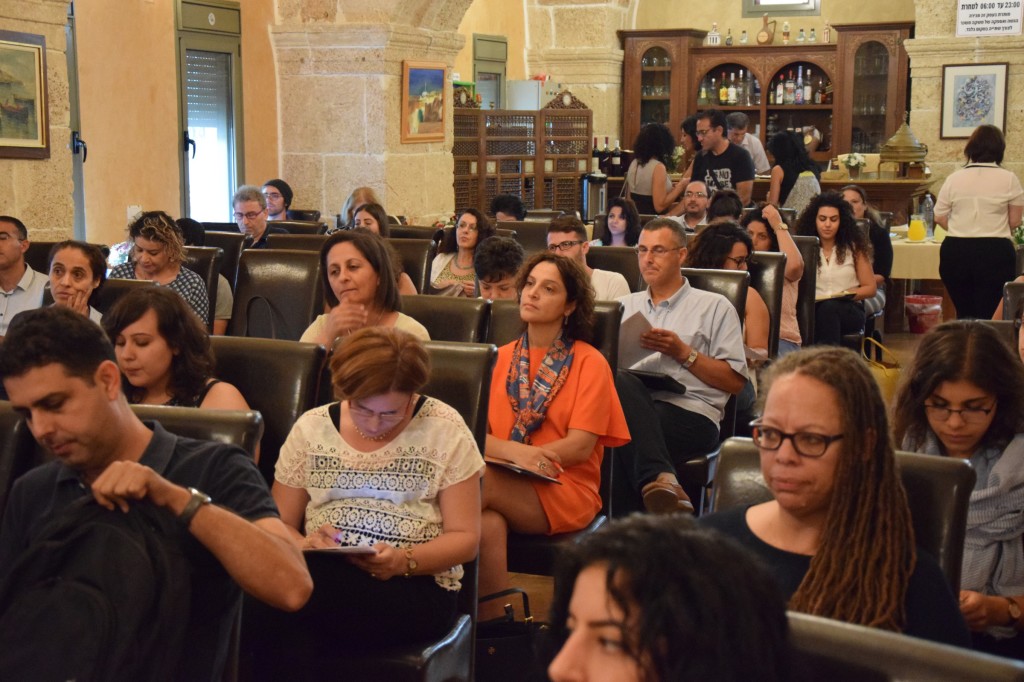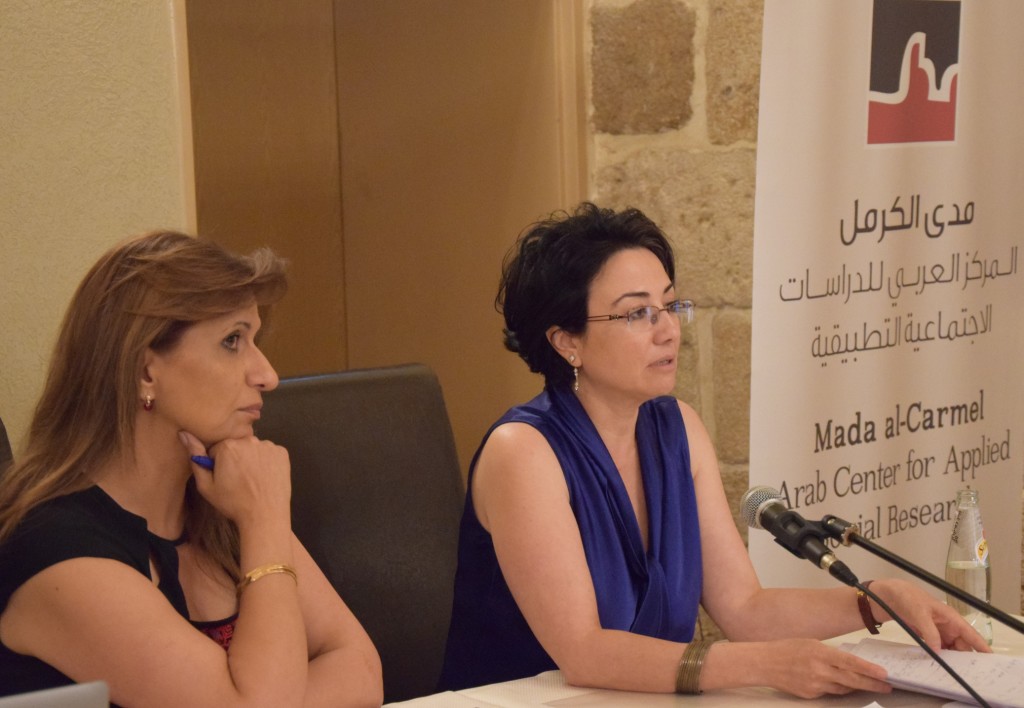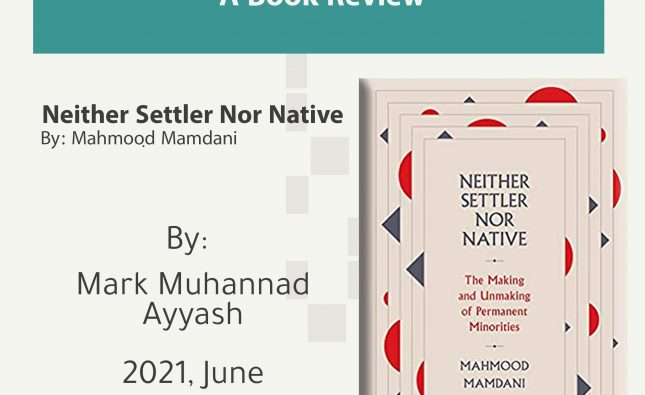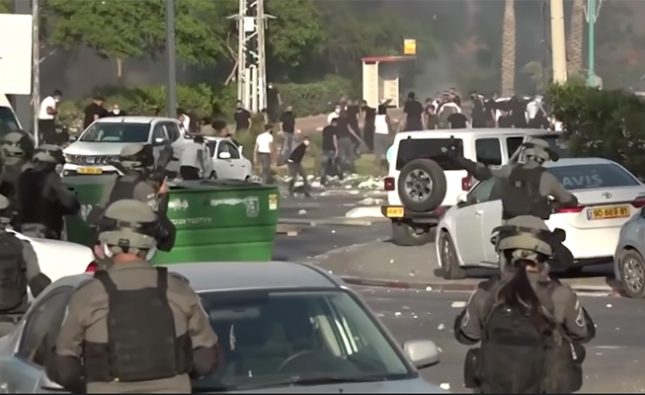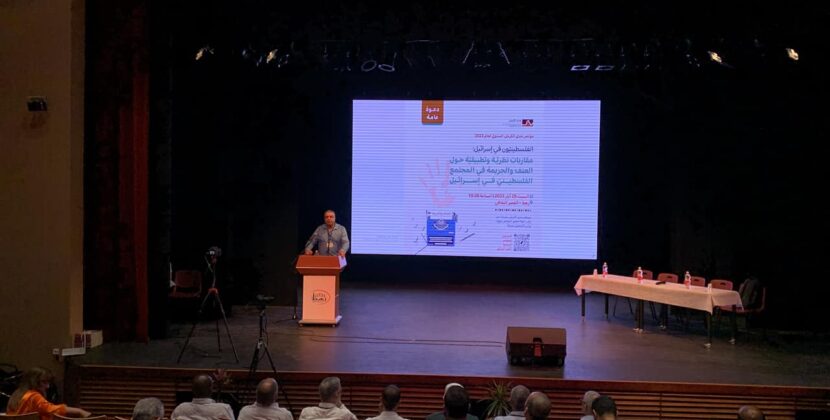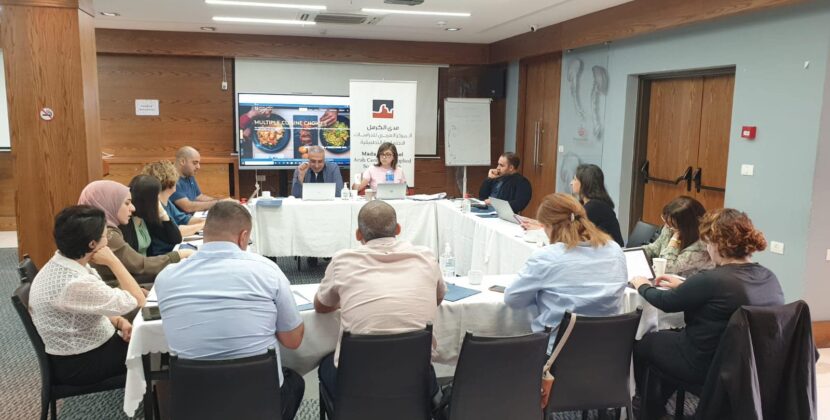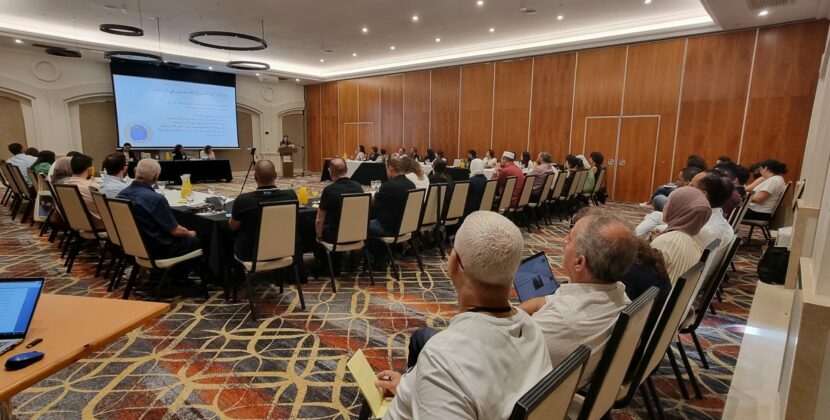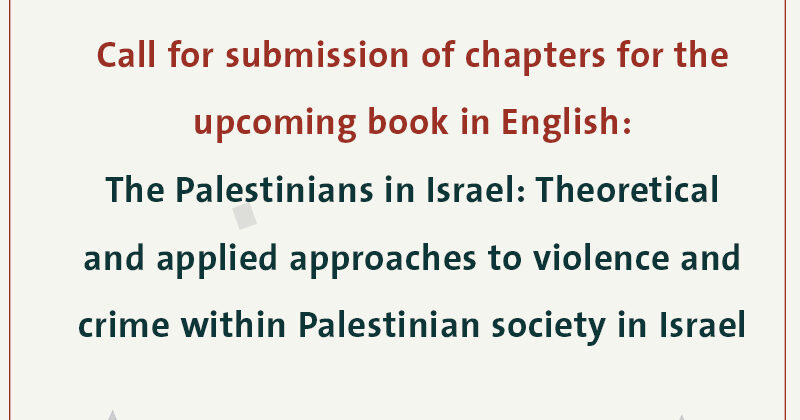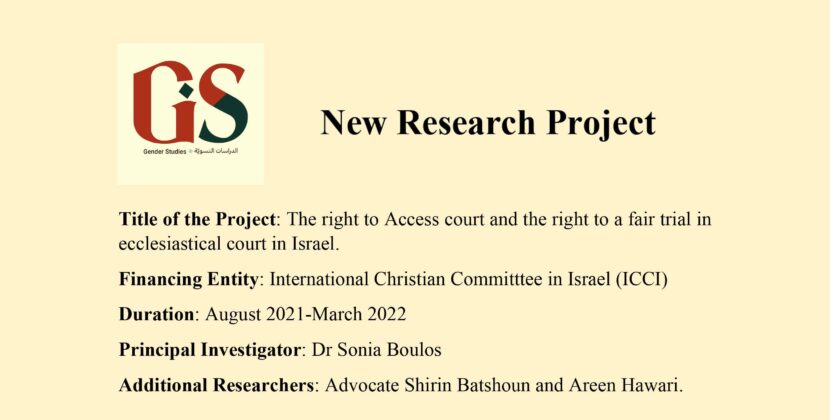The Second International Conference of Gender Studies Program at Mada al-Carmel – Arab Center for Applied Social Research was held in the old city of Acre, on Thursday 14/7/2016, under the title of: The Illusion of Justice in the Settler Colony: Palestinian woman, law and the state.
The conference sought to address the relationship between the three sides of the triangle: The Palestinian woman, law and the state within the settler colonial context. The conference highlighted the women in this triangle; it examined their status, and the impact of this relationship on women all through a three dimensional focus. First, the gender dimension of the relationship’s nature, women being discriminated against by the governing institution on one hand, the Palestinian internal patriarchal society and the Israeli society on the other hand. Second, the ethnic and racial dimension of the state towards Palestinians in general, and the Palestinian woman in particular. Whereas, the third dimension addresses the colonialism of the occupant’s law and the status of Palestinian women in the border zones. The conference also focused on the law’s role as a central approach in the settler colonial system to steal the Palestinian’s woman right to a decent life.
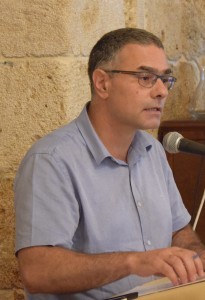 Dr. Mtanes Shihadeh, director of research programs at Mada al-Carmel and coordinator of the Israeli studies program opened the conference with welcoming words through which he presented the aim of the conference and its significance, saying: “This conference stems from the conviction that the instruments of the settler colonialism system are numerous and they are all recruited to serve the dominance, banishment and the superiority of the colonizer, including the use of the legal system to impose dominance and control under the slogan of democracy or the majority’s will in the Israeli case. In addition to the constructional colonial system, in the recent years we have witnessed lawmaking of a number of laws that aimed to control, repression and suppression of the Palestinian collective awareness and their political positions. In addition to suppressing individual freedom of people and interfering in their right of choice for their life partners, not to mention other practices of colonialism in the Palestinian territories of 67 and especially in Jerusalem. All of that is done under the slogan of the majority’s resolution and security.
Dr. Mtanes Shihadeh, director of research programs at Mada al-Carmel and coordinator of the Israeli studies program opened the conference with welcoming words through which he presented the aim of the conference and its significance, saying: “This conference stems from the conviction that the instruments of the settler colonialism system are numerous and they are all recruited to serve the dominance, banishment and the superiority of the colonizer, including the use of the legal system to impose dominance and control under the slogan of democracy or the majority’s will in the Israeli case. In addition to the constructional colonial system, in the recent years we have witnessed lawmaking of a number of laws that aimed to control, repression and suppression of the Palestinian collective awareness and their political positions. In addition to suppressing individual freedom of people and interfering in their right of choice for their life partners, not to mention other practices of colonialism in the Palestinian territories of 67 and especially in Jerusalem. All of that is done under the slogan of the majority’s resolution and security.
Professor Nadera Shalhoub-Kevorkian, director of gender studies program at Mada al-Carmel, a professor of criminology, started the sessions with a lecture under the title of: “A Feminist Critical Perspective on Palestinian Woman, Law and the Jewish state”, through which she discussed the Zionist settler-colonial project and its impact on the Palestinian woman, saying: “The settler-colonial system, which evolved the moment the state of Israel was born, is in an instant relentless state of emergency which seeks to eliminate Palestinians, the others, the penetrating and the dangerous beings for the sake of the Jewish people’s lives, growth and prosperity. Through the description of the fundamental definition of the Jewish state according to the Zionist ideology represented by the idea of the pure race and establishing a racist citizenship clearly manifested in the law of return of the year 1950, which automatically gives citizenship to any person who can prove to have one Jewish ancestor, whereas in the same time denies the right of return for Palestinians who were born on this land. Through other Israeli laws of citizenship and entrance, we can indicate that Palestinian eviction from the ideological frame of the Jewish state has been activated and that it has been sustained through violence and in some cases in a very slow and light manner, but it’s always a powerful method of eradication. Hence, the inevitable plan of demography lies in the wings of birth. With each Palestinian childbirth, there comes a distinct threat for the Jewish inhabitants. Although the official laws and the ethical codes ban division, and may require neutral medical care supply equally for everybody, the ability of breaking and manipulating laws was achieved, legalized, and overlooked. The illegal becomes flexible and legal, the forbidden becomes official. It’s condemned by many but rarely applied, or investigated into, or made right.
The first session of the conference was under the title of “Women, state racism and the law” headed by advocate Hadeel Badarneh, with the participation of Cheryl I. Harris, professor of Civil Rights and Civil Liberties, School of law, University of California-Los Angeles, Suhad Bshara, Advocate, director of land and planning unit, Adalah-The Legal Center for Arab Minority Rights in Israel and Sarab Abu Rabia-Queder, Senior lecturer, Ben Gurion University- Al-Naqab.
Cheryl Harris talked about the American experience in state racism and law, saying: “Although slavery isn’t vivid in law issuing, it still has, until this day, its effect on shaping the political life of the black people in America and abroad, and particularly on the relationship between the black and other citizens, in addition to the issue of granting them the American nationality like other citizens of the country”. In her intervention, she focused on the black woman’s relationship with the state on one hand, and her relationship with the male chauvinist society on the other. Suhad Bishara’s intervention was under the title of “Gendered Spaces in the Formation of the Israeli Settler-Colonialis”, where she discussed the eviction of Um al-Hiran village which was not recognized in al-Nakkab and the way the Israeli authority and institutions dealt with women’s role in this case, to convert it into a women’s space. Suhad fcused on the clear language of gender in the case of Um al-Hiran village, which supports the Colonial Zionist Policy. Sarab Abu Rabia Queder had the last intervention during the first session titled “The Policy of De-Classing the working Palestinian women in Al-Naqab”, where she discussed the settler-colonial logic which is represented in the exclusion of indigenous Palestinians in Al-Nakkab in general, and the professional Palestinian women in particular. The logic of colonialism doesn’t only aim for the weak and pour groups, but it also targets the economically strong stratums which challenge the colonial power. In this context, Abu Rabia Queder says: “The Palestinian working women in Al- Naqab are targeted by the settler-colonial policy, because they own the largest cultural capital in their society, on both economic and educational levels”.
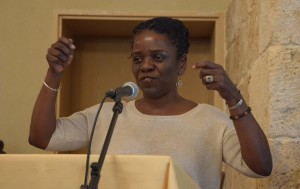 The second session was under the title “Gender, Racism and Violence against Women” chaired by Aamer Ibrahim, Masters student. It contained four interventions by local and foreign lecturers. Denise Da Silva, from Queen Mary, University of London had the first intervention titled “Palestinian Women Confronting Racial Violence”, where she discussed the internal conflicts in the concept of justice, which is supposed to be based on equality. The concept of justice does not take in consideration the political interference of the authority involved in violence and gender violations, and which the approach based on law tries to resolve. The second intervention, by Nisreen Massarwi from Kayan – Feminist Organization, was under the title: “The State, the Palestinian Employer, and the Sexual Harassment in Workplace” through which she raised the subject of the constrains the female society lives in, generally, and all that is related to the active participation in the public area whose rules are very powerfully written by the white institution. This is a sharp and accurate statement involving everything concerning the reality a Palestinian woman in Israel lives in, especially the Palestinian working woman- or a woman looking for a job – in front of her Palestinian employer. The third intervention, conducted by Abeer Baker, dvocate, was titled “The Absence of Legal Protection for Palestinian female Prisoners in Israel” where she discussed the struggle of the Palestinian female prisoners which is not different than the struggle of the Palestinian male prisoners in terms of the forms of humiliation and the various methods of illegal interrogation. Except that being women, they may be subjected to additional types of psychological and physical torture, which mainly aims for their bodies and their sanctity. The fourth intervention, carried out by the PhD student Saeda Mogari-Renawi under the title: Between the narration and the decision – “a Critical Analysis of Rape Crimes against Palestinian women as Presented in Israeli Courts” through which she discussed the centralization of Judicial courts to make radical social changes and not only a system for struggle solving. She focused on legal critical theories which reveal that this space represents and reflects power struggles among several groups in the field, where each has its own values and desires, it is considered to be a tool for pressure in the hands of the ruling group in order to suppress the other groups. That is the reason why for more than three decades the female criticism focuses on the Judicial system, which they consider to be the central tool for supporting the logic of equality between men and women, in addition to improving woman’s social status using legal methods that include stopping violence and different types of torture.
The second session was under the title “Gender, Racism and Violence against Women” chaired by Aamer Ibrahim, Masters student. It contained four interventions by local and foreign lecturers. Denise Da Silva, from Queen Mary, University of London had the first intervention titled “Palestinian Women Confronting Racial Violence”, where she discussed the internal conflicts in the concept of justice, which is supposed to be based on equality. The concept of justice does not take in consideration the political interference of the authority involved in violence and gender violations, and which the approach based on law tries to resolve. The second intervention, by Nisreen Massarwi from Kayan – Feminist Organization, was under the title: “The State, the Palestinian Employer, and the Sexual Harassment in Workplace” through which she raised the subject of the constrains the female society lives in, generally, and all that is related to the active participation in the public area whose rules are very powerfully written by the white institution. This is a sharp and accurate statement involving everything concerning the reality a Palestinian woman in Israel lives in, especially the Palestinian working woman- or a woman looking for a job – in front of her Palestinian employer. The third intervention, conducted by Abeer Baker, dvocate, was titled “The Absence of Legal Protection for Palestinian female Prisoners in Israel” where she discussed the struggle of the Palestinian female prisoners which is not different than the struggle of the Palestinian male prisoners in terms of the forms of humiliation and the various methods of illegal interrogation. Except that being women, they may be subjected to additional types of psychological and physical torture, which mainly aims for their bodies and their sanctity. The fourth intervention, carried out by the PhD student Saeda Mogari-Renawi under the title: Between the narration and the decision – “a Critical Analysis of Rape Crimes against Palestinian women as Presented in Israeli Courts” through which she discussed the centralization of Judicial courts to make radical social changes and not only a system for struggle solving. She focused on legal critical theories which reveal that this space represents and reflects power struggles among several groups in the field, where each has its own values and desires, it is considered to be a tool for pressure in the hands of the ruling group in order to suppress the other groups. That is the reason why for more than three decades the female criticism focuses on the Judicial system, which they consider to be the central tool for supporting the logic of equality between men and women, in addition to improving woman’s social status using legal methods that include stopping violence and different types of torture.
 The third session was headed by Bana Shoughry, advocate, who discussed the topic: “Law, Death, and the Border Zones”, Areen Hawari, PhD student, participated in the session and introduced an intervention under the title of: “Debates on the Personal Status Laws’ Amendment: Discourses and References”. The intervention addressed the initiative for the amendment and legislation of laws that would impact Personal status laws of the Palestinians inside the green line. The Othman doctrine system was the exclusive reference for the family laws until the year of 2001, the same laws used by the British mandate and later on adopted by Israel. In addition to subjecting the paper to discussion about those initiatives which partially resulted into minimizing religious court capacities concerning family laws for Muslims and Christians and giving more capacity to civil courts.
The third session was headed by Bana Shoughry, advocate, who discussed the topic: “Law, Death, and the Border Zones”, Areen Hawari, PhD student, participated in the session and introduced an intervention under the title of: “Debates on the Personal Status Laws’ Amendment: Discourses and References”. The intervention addressed the initiative for the amendment and legislation of laws that would impact Personal status laws of the Palestinians inside the green line. The Othman doctrine system was the exclusive reference for the family laws until the year of 2001, the same laws used by the British mandate and later on adopted by Israel. In addition to subjecting the paper to discussion about those initiatives which partially resulted into minimizing religious court capacities concerning family laws for Muslims and Christians and giving more capacity to civil courts.
As for the second intervention, it was under the title of “The State and the Independence of Ecclesiastical Courts: A Colonial Patriarchal Legacy and a Pure Political Decision”, presented by Hala Mousa Dakwar, advocate, who talked about the legal void that resulted from Church independence from the Israeli judicial system, the absence of transparency and foreign judicial monitoring of the verdicts that are made. The third and the last intervention was under the heading of: “Frozen Laws-Frozen Bodies: on the Detained Palestinian Women Corpses” presented by the lecturer Suhad Daher-Nashif, who discussed the detention and freezing of Palestinian women’s corpses in Israeli morgues, which she defined as freezing Palestinian women’s death in terms of time and space, all through the interaction of three types of legal bases; the international law and the agreements concerning handling corpses in the areas of struggle, the Israeli law and the supreme court’s decision regarding this issue, in addition to the Palestinian law, and social customs.
At the end of the conference, a closing session was held by MK Haneen Zu’bi and Professor Nadera Shalhoub-Kivorkian, who talked about the Palestinian women’s journey of struggle against the Israeli authorities on one hand, and the way the Palestinian society treats women on the other hand.





